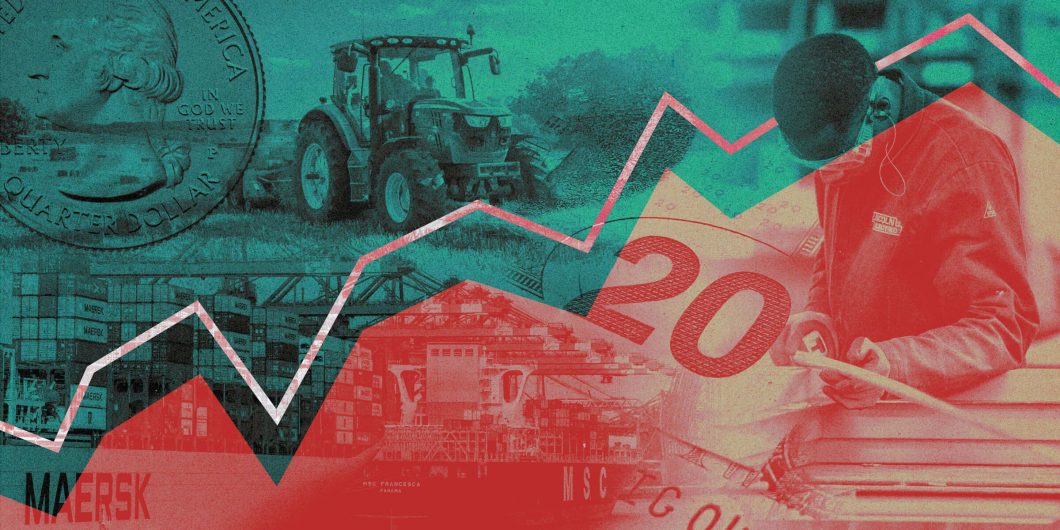Dismantling the Regulatory State
Samuel Gregg’s lead article adroitly sketches the opportunities and obstacles to America building a broad-based economy, but I want to focus on one particular class of obstacle: the problem of regulation. Dr. Gregg rightly points to excessive regulation as a problem. Yet the problem is that the current American system of government is designed to produce excessive regulation. Until we dismantle that system, hopes of a broad-based economy will continue to be thwarted.
We can think about this in terms of what it takes to build a successful enterprise. The basic building blocks are finance to get it off the ground, energy to power it, and labor to staff it. All three of these factors are highly regulated, and regulations restrict access to entry into the market. Worse, while many such restrictions are often the result of unintended consequences, too often they are by design. Where the free market is providing solutions, regulators seem determined to close them off.
Financial Regulations
Staring with finance, the traditional way to start a business was to get a loan from a bank. However, after the financial crisis the Small Business Administration (SBA) found bank lending to small businesses “plummeted,” and post-crisis consolidation plus the stricter lending standards of the Dodd-Frank Act meant that it never really recovered. Today, the SBA recommends several different sources of money before mentioning bank loans.
One of those sources is the form of private equity known as venture capital (VC), where the funder takes an equity stake in the new business. However, in order to attract venture capitalists, businesses need an exit plan. One popular form of exit is acquisition by a larger company. Regulators at bodies like the Federal Trade Commission, however, look askance at this, and have been blocking mergers and acquisitions. This will make it harder to attract VC. Thus, the funding noose tightens and fewer new companies are created.
What about credit cards? Google’s founders famously maxed out their credit cards to found the company in a garage. Credit cards became much harder to get after the financial crisis. Yet regulators want to cap the interchange fees that finance the cards, which will mean either higher annual fees or higher interest rates, each of which will make this option less affordable to the cash-low entrepreneur.
One innovative solution is crowdfunding, whereby entrepreneurs raise funding via Internet platforms. Regulators have been extremely hostile to this innovation. In response, Congress passed the bipartisan JOBS Act to allow it. Regulators then took the most restrictive approach to crowdfunding possible under the new law, with the result that new businesses still find it more difficult to raise funds in America than in other countries.
Energy Regulations
Suppose you do manage to find funding. How do you get the energy to power your business, particularly if it’s in energy-intensive manufacturing? Electricity for commercial or industrial uses is more affordable than residential, but its cost has steadily risen over the past two decades, even accounting for inflation.
One major reason for this steady price rise is regulation. Owing to concerns over climate change, regulators have made it much more difficult to generate energy using the most affordable source of power, coal. The fracking revolution helped eased the cost increase as it made switching to lower-emission natural gas much more affordable. However, gas is simply not low emission enough for the regulators, who are increasingly demanding that more energy generation come from renewable sources for the sake of “environmental justice.” America’s nuclear regulators (the Nuclear Regulatory Commission,) for instance, are so beholden to such concerns that no nuclear plant licensed by them has started operations since their creation in 1975. Although nuclear emits no carbon, regulators make the process of opening a new plant so difficult that they might as well not allow it at all.
Indeed, energy regulators are finding more ways to kill off affordable energy. For instance, the current administration wants to achieve “Net Zero” carbon emissions by 2050, which would not just require a tremendous increase in the cost of energy, but lead to significant reductions in industrial activity. A Cambridge University report for the British government on reaching zero emissions contains some sobering lines:
- All existing forms of (steel) blast furnace production . . . are not compatible with zero-emissions.
- All existing forms of cement production are incompatible with zero emissions.
- We currently have no non-emitting freight ships.
- There are no options for zero-emissions flight in the time available for action, so the [aviation] industry faces a rapid contraction.
- All coal, gas, and oil-fuel supply from extraction through the supply chain to retail must close within 30 years
- Beef and lamb phased out by 2050 and replaced by greatly expanded demand for vegetarian food.
Never mind a broad-based economy, that doesn’t look like any economy we would recognize. Yet it is the logical conclusion of our energy regulators’ stated goal, and courts are increasingly finding anything contrary to it illegal. Meanwhile, the administration is considering redefining the “social cost of carbon” to whatever it takes to achieve Net Zero because the actual social cost of carbon isn’t high enough to justify it.
Achieving any of the results that Dr. Gregg would like to see achieved through entrepreneurship and competition will require nothing less than a wholesale program aimed at eliminating the administrative state as it exists today.
Labor Regulations
Let’s say you have a business with low energy needs that is labor-intensive. Employing staff is one of the most regulated aspects of any business. And the more employees you have, the more regulations you need to follow, which is why so many businesses employ just enough people to stay below the next regulatory threshold. The overall burden of regulations favors big business over small, which is why bigger businesses often get behind new regulations that make it harder for new entrants to compete. That’s a major reason for the decline in economic dynamism in business over recent years.
The burdens of employment regulation are such that innovative solutions arose in response. Businesses started contracting out non-essential functions like office cleaning. Others adopted a franchise model, empowering a new generation of entrepreneurs. Regulators struck back, saying these models constituted “joint employment,” making both companies involved liable for employment regulation. Other innovators created the platform or “gig” model of work, a new class of flexible working arrangement ideal for those whose daily schedules required flexibility. Regulators said that these jobs should be the same as full-time employment, subject to full regulation.
How about getting your goods to buyers? As Margaret Thatcher once said, “You and I come by road or rail. Economists travel on infrastructure,” and our infrastructure is in legendarily bad shape. Despite the massive spending in the recent infrastructure law, the law does little to ameliorate the regulatory burdens that led to this problem in the first place. Environmental regulations mean that getting approval for a project involves a long-haul slog, and labor and local regulations vastly increase the cost and time necessary for building a permitted infrastructure project. That may be why, despite having the funds to pay for it, the authorities in Pittsburgh prioritized things like bike lanes over repair of the bridge that collapsed there recently.
Future Regulations
What should be apparent is that there is a regulatory ratchet in place. Regulators generally take the most stringent view about their powers and then use vaguely worded legislation and judicial deference to expand their powers into new areas. This is even the case with frontier technology that could not possibly have been in Congress’ mind when it delegated rulemaking power to the executive branch. For instance, the Securities and Exchange Commission is claiming it has the power to regulate cryptocurrencies—and perhaps by extension, the innovations they could fuel—on the grounds that they are securities.
That is why claims that industrial policy can deliver a broad-based economy to the United States are so laughable. Any industrial policy will be coopted by bureaucrats and rent-seeking companies toward their own ends. That lack of accountability means that regulators will always choose to use power delegated to them in ways that favor their own interests—and rent-seekers will always look for ways to exploit the situation. It is, frankly, naive to think otherwise.
The fossil fuel industry has no chance of competing when the environmental agencies are dedicated to destroying it. Manufacturers will always seek to reduce their number of employees, automate, or even move offshore while employment and labor law continue to make hiring more costly. The entrepreneur with a good idea but no funding will find it increasingly difficult to get her idea off the ground while financial regulation is focused on eliminating risk.
This administrative state has to be reined in. Either the courts or Congress could start this by taking the issue of nondelegation seriously, forbidding the delegation of any significant rulemaking to agencies and ensuring proper accountability for agency heads. A commission could be established to reduce the backlog of regulation, while rules such as sunset provisions could be put in place to ensure that any delegated authority reverts to Congress automatically after a period of time. Other ideas, like a Devil’s Advocate “Office of No” within the administration aimed at challenging any proposed regulation, and rules to stop either the executive or Congress from abusing a genuine crisis like a pandemic to grab new powers, could be usefully explored.
Achieving any of the results that Dr. Gregg would like to see achieved through entrepreneurship and competition will require nothing less than a wholesale program aimed at eliminating the administrative state as it exists today.



